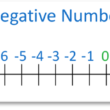Presentism and Infinite History
by Jimmy Akin
Filed under The Existence of God

“In the beginning, God created the heavens and the earth.” While the world definitely had a beginning, there’s a question of whether we can prove this by reason alone (i.e., by philosophical arguments). Defenders of the Kalaam cosmological argument often use an argument like this one, which is found in William Lane Craig’s book Reasonable Faith: 1) An actually infinite number of things cannot exist.2) A beginningless series of events in time entails an... Read More
Using the Kalaam Argument Correctly
by Jimmy Akin
Filed under The Existence of God

In recent years, one of the most popular arguments for the existence of God has been the Kalaam cosmological argument. Ultimately, I think this argument is successful, but many of the ways it has been employed are unsuccessful. It is an argument that needs to be used carefully—with the proper qualifiers. Stating the Argument We can state the Kalaam argument like this: 1) Everything that has a beginning has a cause.2) The universe has a beginning.3) Therefore,... Read More
Traversing an Infinite?
by Jimmy Akin
Filed under The Existence of God, Uncategorized

God created the universe a finite time ago, but there’s a question of whether we can prove this by reason alone. Defenders of the Kalaam cosmological argument often claim that the universe cannot have an infinite history because “traversing an infinite” is impossible. In his book Reasonable Faith (pp. 120-124), William Lane Craig puts the argument this way 1. The series of events in time is a collection formed by adding one member after another2.... Read More
What’s Wrong with the Countdown Paradox?
by Jimmy Akin
Filed under The Existence of God

Sometimes defenders of the Kalaam cosmological argument defend its second premise (i.e., that the world couldn’t have an infinite past) by proposing a paradox involving counting. The line of reasoning goes something like this: A. Suppose that the universe has an infinite history (the kind of history you’d need to do an infinite countdown).B. Suppose that a person has been counting down the infinite set of negative numbers (. . . -3, -2, -1) for all eternity,... Read More
Are Fine-Tuning Arguments for God (or the Multiverse) Circular?
by Jimmy Akin
Filed under The Existence of God

In a recent video, theoretical physicist Sabine Hossenfelder argues that design arguments for God’s existence commit the fallacy of begging the question—also known as circular reasoning. Do they? Before we began, I want to lay my cards on the table and say that I’m a fan of Sabine Hossenfelder. She’s smart, well qualified, and a research fellow at the Frankfurt Institute for Advanced Studies. I appreciate her commitment to explaining physics in comprehensible... Read More
St. Anselm’s God
by Matt Nelson
Filed under The Existence of God

St. Anselm’s ontological argument for God’s existence often gets a bad rap, not just from atheists but even from many Catholics. For one thing, it can be a difficult argument to understand. Though its premises are rather simple, something about it makes us think we are being tricked. For another thing, we know that eminent authorities like St. Thomas Aquinas have expressed their discontent with the argument. Nonetheless, I think it is wrong to discard the argument without a... Read More
A ‘God Problem’ at the New York Times
by Trent Horn
Filed under The Existence of God

When I saw that the New York Times had published an argument against the existence of God with a URL that contained the phrase “philosophy-God-omniscience,” it brought out my inner Catholic-apologist-geek. I became excited at the prospect of teasing out a philosophical puzzle. But the only puzzle I came away with was this: how could a philosopher at a large public university publish a paper on the existence of God—in the nation’s most prestigious newspaper—that... Read More
The Santa Claus “Proof” for God’s Existence
by Dr. Dennis Bonnette
Filed under The Existence of God

In my title, the word, “proof,” is in quotation marks, because this article is not intended as a strict proof for God’s existence. Many may well not be impressed by the argument at all. Still, it may have some merit, since it might at least give skeptics, agnostics, and atheists some pause for thought. Most children are taught in their early years to believe in the fictional character who lives at the North Pole. Indeed, like St. Thomas Aquinas’s own Five Ways to prove God’s... Read More
Understanding the Mysterious Fifth Way to God’s Existence
by Dr. Dennis Bonnette
Filed under The Existence of God

The fifth way is taken from the governance of things. For we see that things which lack knowledge, such as natural bodies, act for an end, which is apparent from this: that always, or more frequently, they act in the same way, so as to obtain that which is best. Hence it is plain that they achieve their end, not by chance, but from intention. However, those things which do not have knowledge do not tend toward an end unless directed by something with knowledge and intelligence -- as the... Read More
How Proofs for God Lead to Divine Simplicity
by Dr. Dennis Bonnette
Filed under God's Nature, The Existence of God

According to the First Vatican Council, the existence of God can be known with certainty by the natural light of human reason through those things that have been created. (De Fide)1 Pope Pius X specified this statement more exactly by affirming that God’s existence can be known “as a cause is known with certainty through its effects, from those things that have been made, that is, by the visible works of creation….” (Sententia fidei proxima).2 Since every being must have a sufficient... Read More






